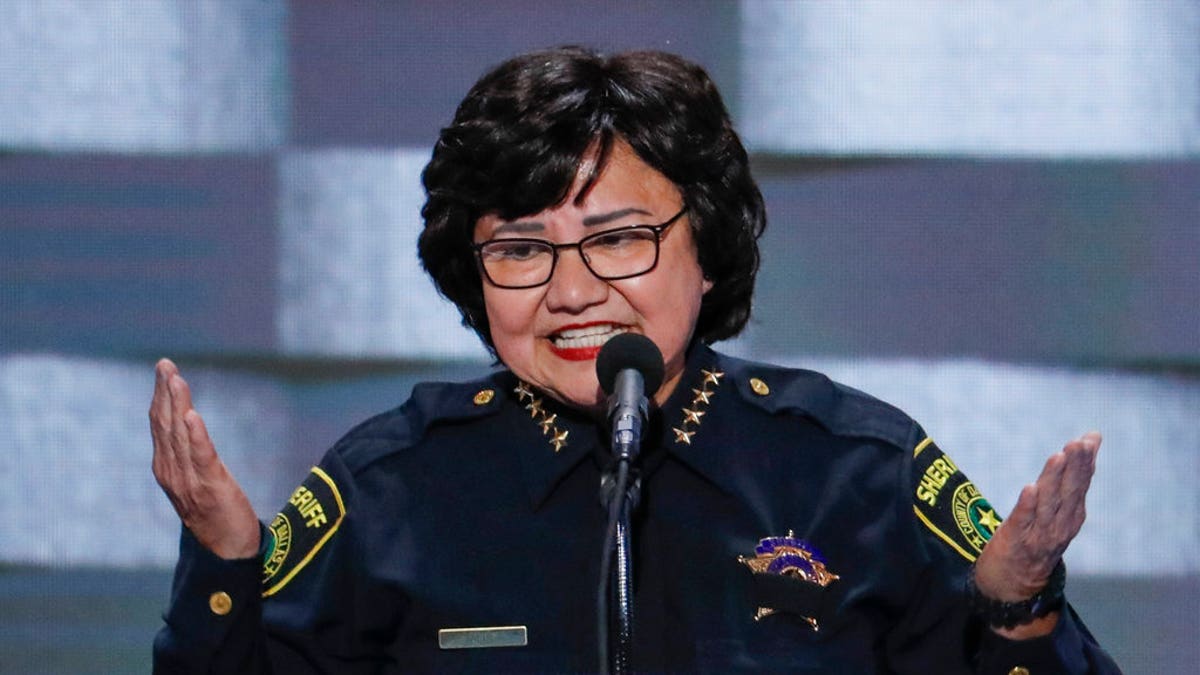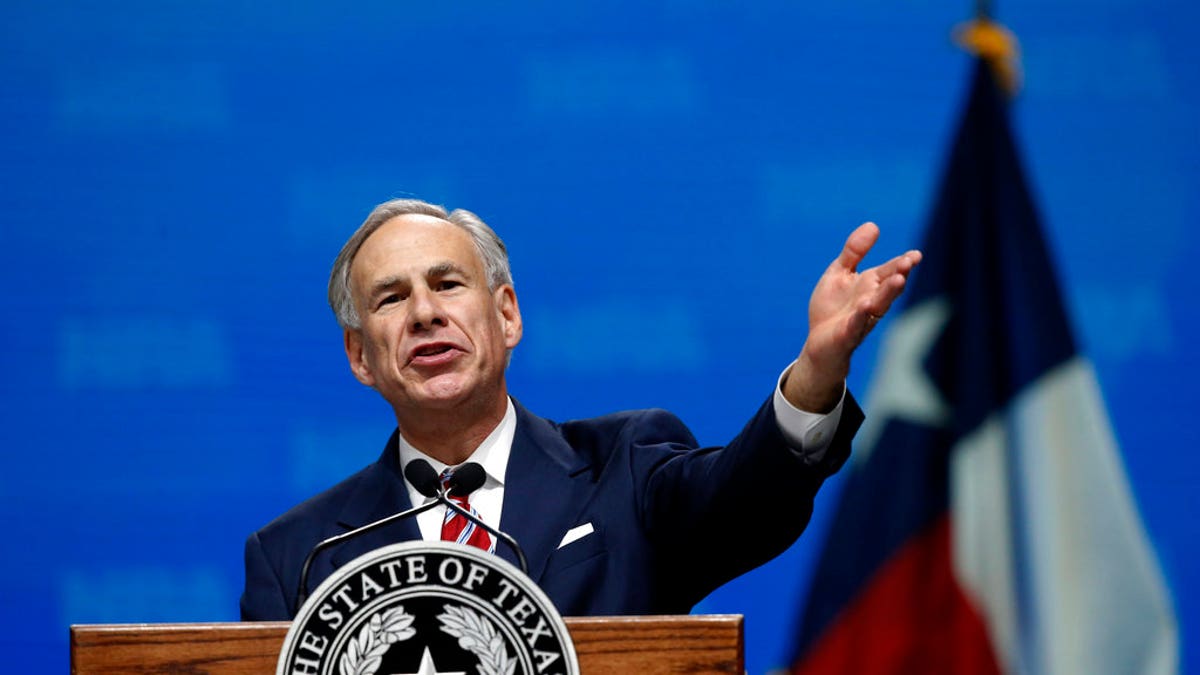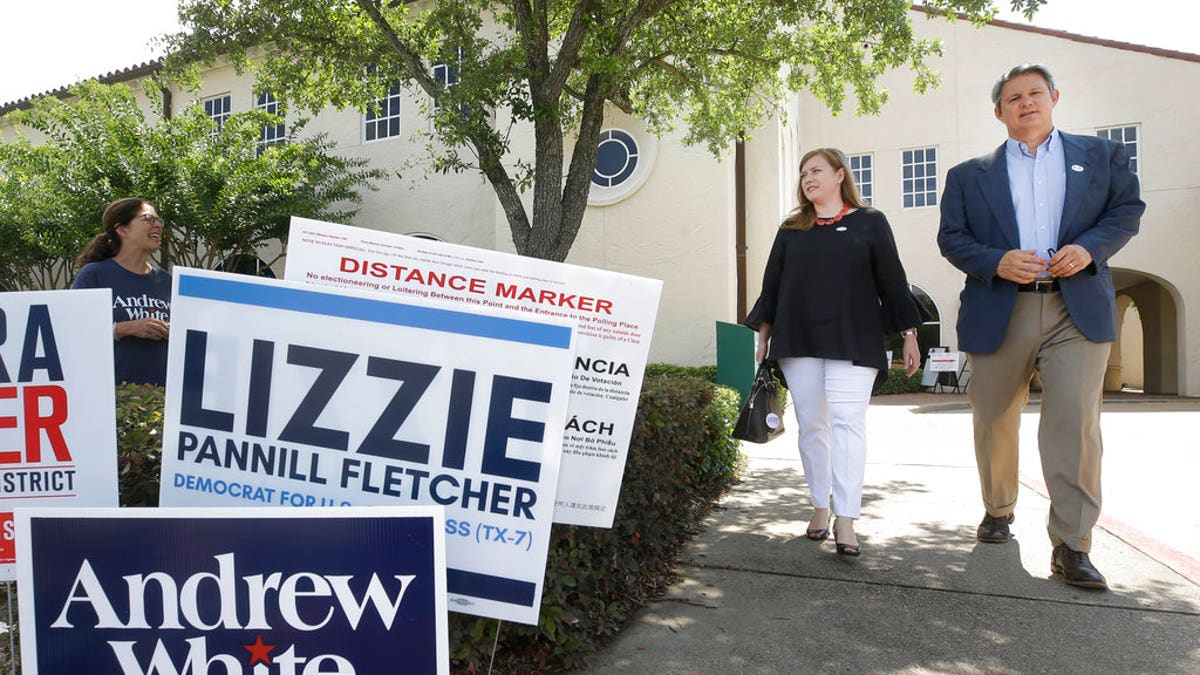
In this July 28, 2016, file photo, Dallas Sheriff Lupe Valdez speaks during the final day of the Democratic National Convention in Philadelphia. Texas' primary runoff will test whether the national Democratic Party's establishment can overcome an insurgent wing more openly hostile to President Donald Trump. (AP Photo/J. Scott Applewhite)
A liberal outsider who founded an activist group against President Donald Trump lost her insurgent bid for a U.S. House seat in Houston on Tuesday night while a Hispanic former sheriff became the first openly gay and Latina nominee for governor in Texas history.
Both outcomes soothed anxious Democratic Party leaders in a slate of runoffs that otherwise unfolded with little fanfare in Texas, which remained shaken by a high school shooting that killed 10 people just as early voting ended last week.
In one of the most-watched races, Laura Moser lost her Democratic runoff for Congress to Lizzie Pannill Fletcher, a former Planned Parenthood board member. Her defeat was a relief to national Democrats who saw Moser's liberal campaign as an unelectable drag on their chances of retaking control of the House.
And while Democrats have few illusions of ousting Republican Gov. Greg Abbott in November, Lupe Valdez clinching the Democratic nomination for governor spared the party from putting at the top of their ticket Houston businessman Andrew White, a moderate who personally opposes abortion.

In this May 4, 2018, photo, Gov. Greg Abbott speaks at the National Rifle Association-Institute for Legislative Action Leadership Forum in Dallas. (AP Photo/Sue Ogrocki)
Valdez, 70, won despite losing the support of some Hispanic activists over her record on immigration as Dallas sheriff and a lack of fundraising.
In Congress, Fletcher's win was one of three House primary runoffs in Texas that are key to whether Democrats can flip can the minimum 24 GOP-held seats they'll need to seize a majority in Congress next year.
Not willing to take any chances, the fundraising arm for congressional Democrats worked to undercut Moser in a district that Republican John Culberson has held since 2001 — but has shifted to a more Hispanic, better educated battleground that Hillary Clinton narrowly won in 2016.
Moser made the runoff despite the Democratic Congressional Campaign Committee criticizing her for writing jokingly in 2014 that she'd rather have teeth pulled than live in small-town Texas.
Susan Wright, a voter in Houston, said she thought "Democrats in Washington really screwed up" by attacking Moser.

Lizzie Pannill Fletcher, a Democrat candidate for the 7th Congressional District, and her husband, Scott Fletcher, leave after voting in the primary runoff at St. Anne's Church, Tuesday, May 22, 2018, in Houston. (Melissa Phillip/Houston Chronicle via AP)
"It was too bad they decided to make it sound like someone has done a big investigative report on her. I never saw it." Wright said.
Guns did not appear to be a late breakthrough issue in the runoff days after the shooting at Santa Fe High School outside Houston. Hours before polls closed Tuesday, Abbott hosted the first of three round table discussions this week with policymakers to discuss better fortifying schools.
But Abbott hasn't mentioned gun control and Democrats say Texas Republicans — who have a dominating majority in the state Legislature — won't dare cross the National Rifle Association by considering tighter firearm limits. Their party's candidates generally agree on gun control and there hasn't been much debate so far in the runoff races.
Two other Texas districts Democrats hope to flip are Dallas U.S. Rep. Pete Sessions', which supported Clinton instead of Trump, as did Rep. Will Hurd's, encompassing 800 miles of Texas-Mexico border from San Antonio to El Paso. Former NFL linebacker Colin Allred advanced to face Sessions and Air Force veteran Gina Ortiz Jones advanced to take on Hurd.




